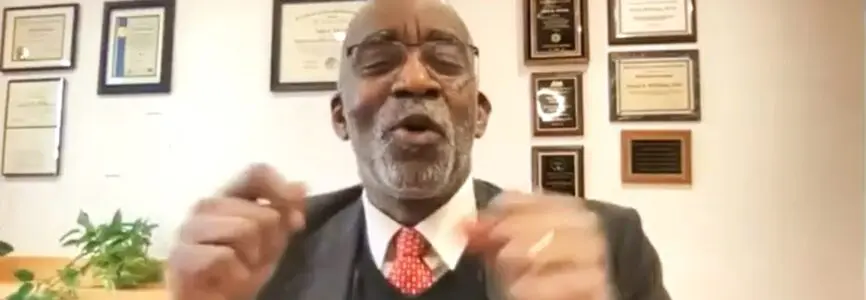Hastings Center News
The Burglar at Midnight
David Williams, an internationally recognized Harvard scholar, showed how segregation is a driver of differences in income and education and how these racial inequities matter for life and health. He spoke last month at the health equity summit, co-convened by The Hastings Center.
In a keynote address to the conference, “Righting the Wrongs: Tackling Health Inequities,” Williams presented data documenting that the gap in life expectancy between Black and white Americans that has hardly changed in more than 70 years: in 1950, whites lived eight years longer; in 2020, they lived six years longer. African Americans with a college degree or more education have lower life expectancy than whites with a high school degree. “There is something profound about how your income and education matters to your health regardless of race,” he said. “But race still matters. even with that in account.”
Before an audience of over 2,600 people, Williams said segregation is a fundamental cause of racial disparities in health. “Think of segregation as a burglar at midnight,” he said.” Once it shows up, valuables disappear like quality schools and safe playgrounds and good jobs and a healthy environment and safe housing and access to high-quality transportation and high-quality medical care. These are all shaped by where you live in the United States.”
Williams also spoke about how racism is embedded in medical care, citing a report of 1.8 million hospital births in Florida, showing that Black babies, when cared for by a white doctor, are three times more likely than white babies to die in the hospital. But when Black babies are cared for by a Black doctor, this disparity is cut in half.
Williams had a wide range of recommendations, supported by high-quality evidence, about what should be done to address these issues, including increasing the number of people of color who are doctors (a number that has declined since 1978), and increasing economic development in poor areas to improve housing opportunities. His talk was moderated by Michele Goodwin, a Hastings Center board member and fellow.
Williams explained that there are three major barriers Americans must overcome:
Awareness: Most Americans are unaware of the degree of problems we face.
Empathy: “We need to feel the pain that our fellow human beings are facing based on the policies that we have developed in this society.”
Science: Williams called for a science base that will guide and develop the political will to address racial and other social inequities in health.
“Why do we need to do this?” Williams asked. “Because it’s about all of us. When one part of America hurts, all of America suffers.”
Watch a video of Williams’s talk and conversation with Michele Goodwin.

